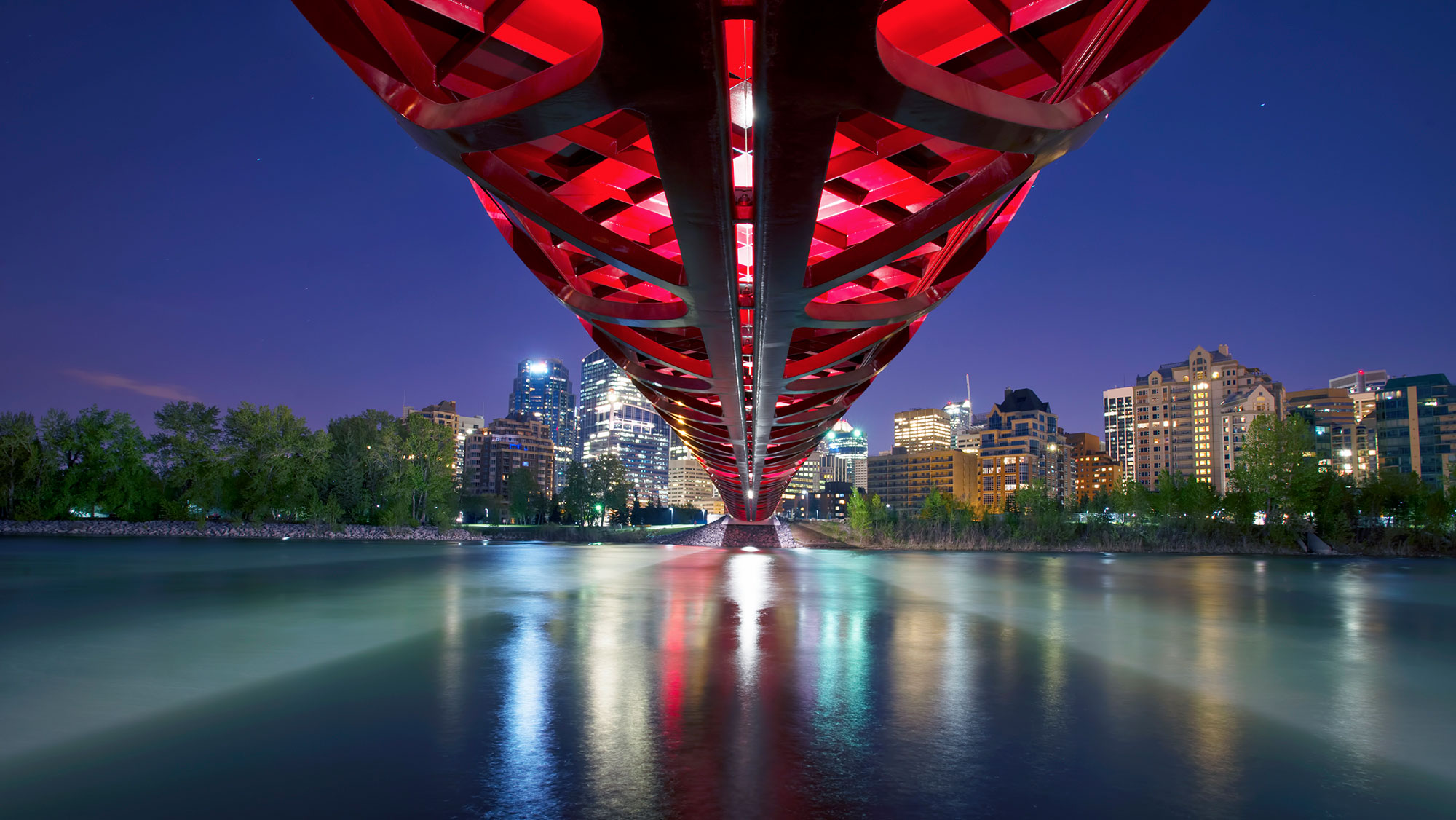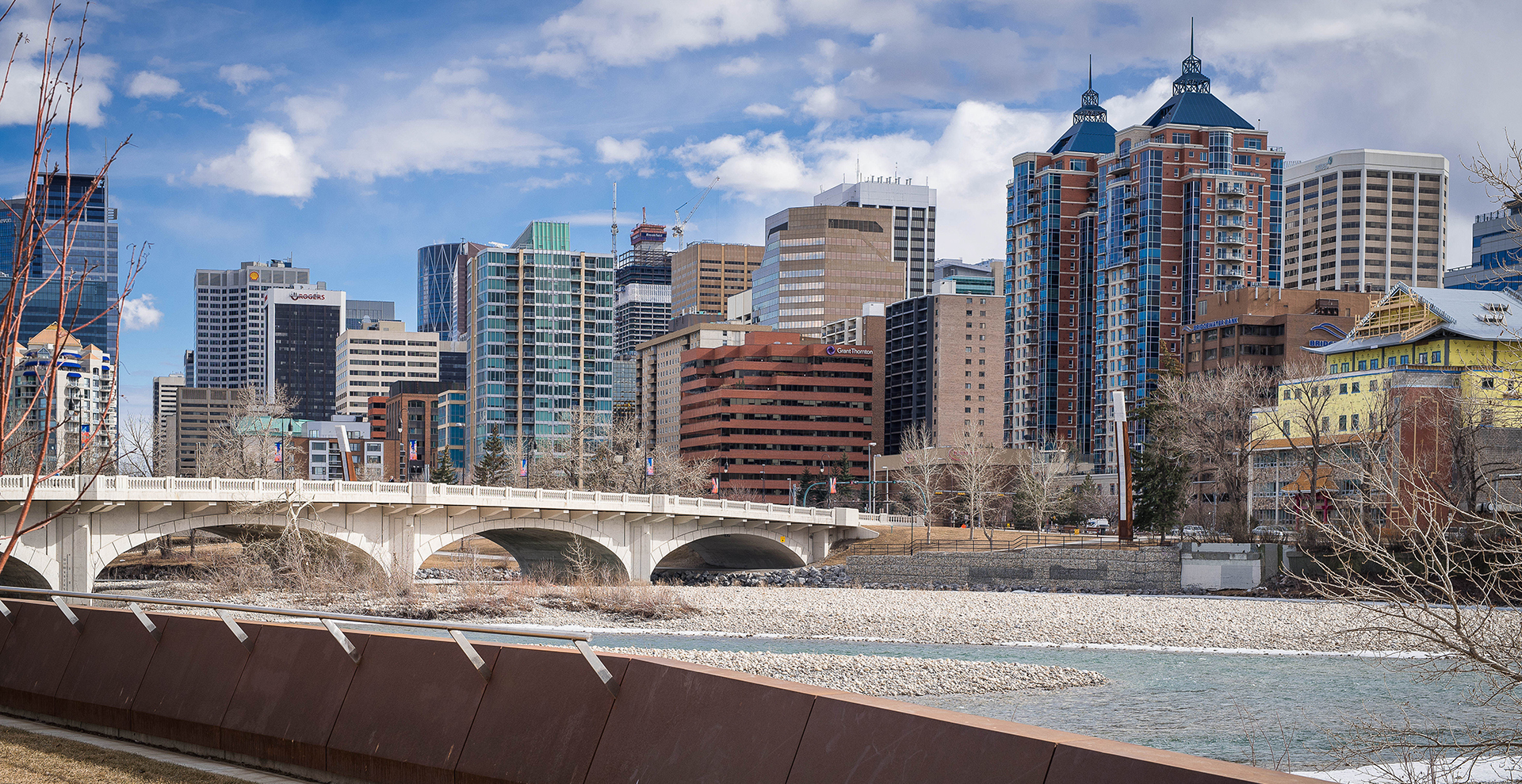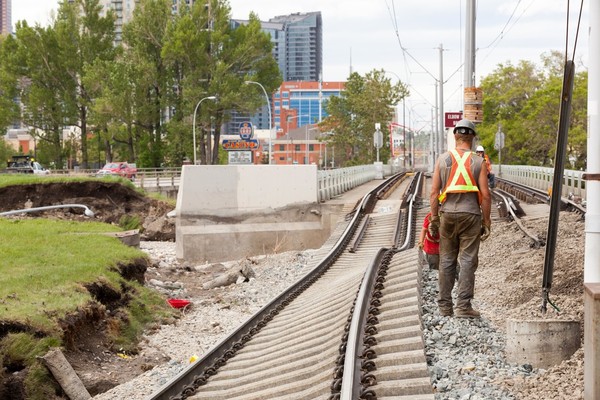Climate Risk Framework and Processes
Climate change is increasing the frequency, severity and intensity of many local climate hazards. These include floods, droughts, extreme heat and severe storms.
Climate hazards impact the strength and function of public infrastructure and City facilities, like recreation centres, water systems and fire halls. To handle future climate conditions, we need to plan and design infrastructure more carefully to make it stronger and more resilient.
A Climate Risk Assessment can help improve infrastructure planning and design for future climate conditions. This assessment uses a framework to identify climate hazards and suggests ways to manage and adapt public infrastructure and City facilities. It helps us build a more climate-resilient city.
Two processes support the Climate Risk Assessment Framework. They help identify climate hazards for a project, determine climate risks, and suggest ways to reduce risks when planning, designing, and operating infrastructure:
Climate Risk and Resilience Assessments (CRRA)
Climate Risk and Resilience Assessments (CRRA)

Climate Risk and Resilience Assessments (CRRA)
A CRRA should be completed together with the project team, design team, climate risk experts, and key interested parties like infrastructure users, managers, or operators. Typically, the CRRA process can take three to five months to complete. Some key parts of the process include:
- A qualified and experienced consultant provides engineering and climate expertise.
- Workshops look into past and future climate hazards for the site or project, the effects of these hazards, and ways to reduce current and future risks. This will require input from operations and maintenance staff who know the site, project type, and/or can speak to historical events.
- A final report summarizes the results. It details the priority of adaptation recommendations and the cost-benefit of implementing these measures.
- An implementation plan for addressing the adaptation measures in the planning, design, and/or operations of the infrastructure or facility.
Climate Risk Screening Assessments (CRSA)
Climate Risk Screening Assessments (CRSA)

Climate Risk Screening Assessments (CRSA)
A CRSA is less time-intensive than a CRRA. It can take one to four weeks to complete.
A CRSA is used in late stage planning or early design when there is more understanding of the project form, function, and occupancy. It requires less involvement from the project team, and is a streamlined process to assess and manage climate risk to City assets. The CRSA provides a short summary report of climate hazard risks and recommended resilience and adaptation measures.
To complete a CRSA, please contact Climate & Environment for the CRSA Worksheet. This tool is utilized by the project team to:
- assess risk,
- identify resilience and adaptation measures, and
- prioritize actions for implementation.
- the project type,
- the project value,
- infrastructure longevity,
- similarity to other projects already having completed a CRRA within Calgary,
- the opportunity to reduce risk,
- funding sources, and
- applicable standards, guidelines, bylaws, and policies.
Both assessments are intended to support climate informed decision-making during project planning and design. They aim to reduce climate risk over the project’s life cycle and use The City’s latest climate projections information.
To find the right type of assessment and when to complete it, check the Climate Risk Assessment Framework and Process Guide. You can also contact the climate adaptation team at The City of Calgary for more information.
Useful links
Completed CRRAs
Since the start of the CRRA process in 2019, the City has completed the following CRRAs:
| Assessments |
|---|
| 8th Street Improvement |
| 50th Avenue Corridor |
| Calgary Electric Transit |
| Bow-Sarcee SW Interchange |
| Bridgeland Place Redevelopment |
| Community Drainage Improvement (CDI) Program |
| East Calgary OWC |
| Calgary Event Centre |
| Police Firing Range |
| Manchester OWC |
| Marda Loop Mainstreet |
| MNP Sport Centre |
| Transit Portfolio |
| Walden Fire Station & Library |
| Sunnyside Diversion Project |
| Glenbow Museum |
| Eau Claire Promenade |
| Forest Lawn Civic Centre |
| 194th & Macleod Interchange |
| Village Square Leisure Centre |
| North Mount Pleasant Arts Centre |
| Stephen Ave Redesign |
Completed CRSAs
The City began to trial the CRSA process in 2023. Completed CRSAs include:
| Assessments |
|---|
| 1st Street SE Improvement |
| Arts Commons |
| Naato'siyinnipi (Aurora) ASP |
| Belmont Fieldhouse & Library |
| Bonnybrook WWTP |
| Deer Ridge Storm Trunk |
| Dominion Centre Retrofit |
| Fish Creek WWTP |
| Glenmore Twin Arena |
| Northeast Athletic Complex |
| South Central Bus Maintenance Storage Facility |
| Spring Gardens OWC |
| Spyhill Optimized Redevelopment |
| Sunalta Main Streets |
| Symons Valley Civic Centre |
| Haysboro LRT Storage Building |
| Haddon Road Depot |
Associated plans and strategies

Climate Dashboard
Fulfilling the 2023-2026 Climate Implementation Plan
Focus Area: Buildings
- Building New City-owned infrastructure to be climate resilient
- Reducing climate risk to existing City-owned infrastructure
Supporting Calgary’s Climate Strategy
Theme: Built Infrastructure

